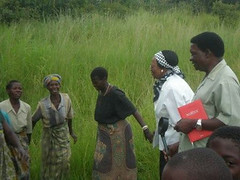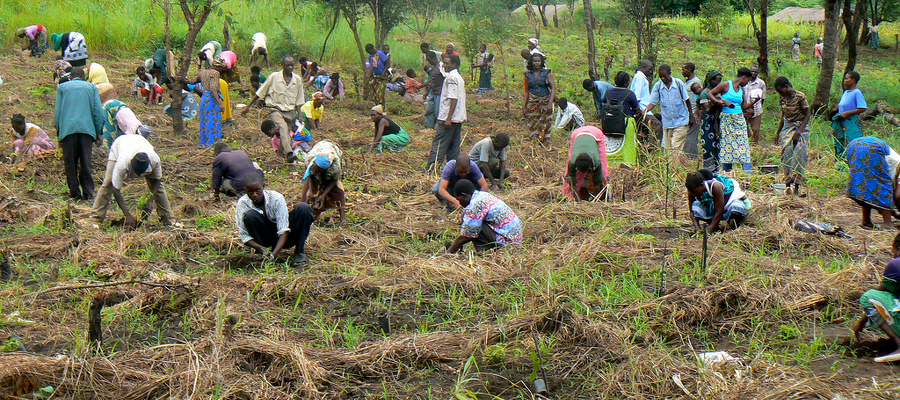
Cooking ~ 98% of the population has no electricity with which to cook. There is no other means available than to use wood or charcoal, both of which require the cutting of trees.
Brick Making ~ In order to make bricks for building construction large amounts of wood is used to fire the brick making kilns.
Shifting Cultivation ~ As land is exhausted from farming, virgin forest is being cleared for new farmland. This deforestation is having drastic effects on the environment.
Building ~ With an ever increasing population, the need for lumber for housing continues to grow.
Tobacco Drying ~ One of the major exports of Malawi is tobacco, and 1 acre of tobacco requires up to 3 acres of woodland to cure the tobacco.
Exports ~ Malawi has a critical need to export in order to help offset the high import costs of goods and services. Wood is a commodity badly needed in other parts of the world, and it brings good prices on the world market.
“The problems that lead to the excess cutting of trees is not an easy one to resolve,” reports Richard Stephens of the Malawi Project. “We find many of the solutions are beyond our ability to solve in the short term. However we can affect the problem by planting thousands of trees. This goes along with the goal of creating incentive programs, instead of creating welfare, from the needed things we send to Malawi. Instead of just giving shoes to everyone along the way we have, on more than one occasion, distributed shoes through incentive programs where the Malawi government has supplied the seedlings, the people in the villages plant the trees, and the Malawi Project donates the shoes as the incentive to do the planting.”
“This past year,” Stephens continues, “we worked with Project C.U.R.E. of Centennial, Colorado to send 7,920 pair of brand new shoes, still in their original boxes, to Malawi. The Dzidalire Group in the Dedza District worked with the villagers to plant the trees and then receive a new pair of shoes for their labor. The result was the planting of nearly a quarter of a million trees. It is a win, win program for everyone.”

